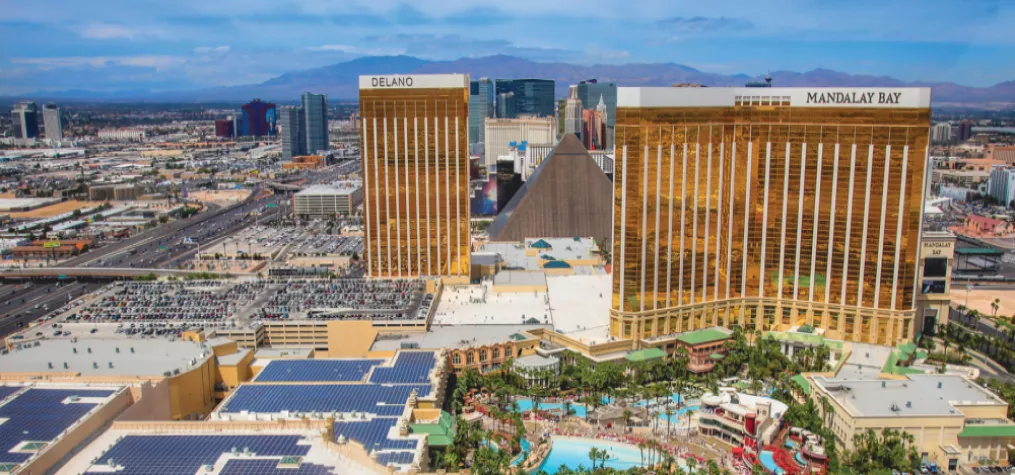Experiential events can be powerful tools for engaging customers with your brand and building loyalty. But what is it about experiential events that make them so compelling? It’s no secret that emotions play a big role in how we think, feel and act when attending an event. Understanding the psychology behind why people respond well to certain elements of your event can help you build unforgettable campaigns that leave a lasting impression on your visitors.
Here are six ways human emotions drive impactful campaigns and shape consumer behavior.
1. Emotional Decision Making
Emotions routinely overshadow rational thinking in consumer choices. Experiential marketing strategically designs immersive encounters that elicit specific emotions, thereby shaping consumer behavior. This emotional engagement becomes instrumental in molding attitudes and perceptions toward a brand.
For example: A luxury car brand hosts an experiential event where attendees can test-drive their latest models on a scenic route. By allowing participants to feel the excitement and adrenaline rush of driving a high-end sports car, the brand elicits emotions of thrill and aspiration. This emotional engagement can lead attendees to make emotional decisions to consider purchasing the car, even if it’s not a rational or immediate need.
2. Positive Associations
Experiential marketing’s essence lies in nurturing positive connections between brands and consumers. Crafted experiences, designed to evoke happiness, delight and other positive emotions not only heighten brand recall but also foster unwavering loyalty.
For example: A popular drinks company creates a summer music festival where attendees enjoy live music, sip refreshing drinks and have fun with friends. This event is designed to evoke happiness, relaxation and a sense of togetherness. As a result, consumers associate the brand with positive emotions and good times, increasing the likelihood that they’ll choose that beverage when seeking a refreshing drink.
3. Sensory Stimulation
Experiential marketing transcends visual aesthetics, captivating multiple senses to weave an immersive tapestry. The stimulation of sight, sound, touch, taste and smell triggers emotional responses, profoundly enhancing brand perception.
For example: A gourmet chocolate brand organizes a tasting event where attendees can savor a variety of chocolates, each paired with different scents, sounds and textures. By engaging multiple senses, including taste and smell, the event triggers emotions of pleasure and indulgence. Attendees are more likely to remember the brand and its products due to the multi-sensory experience.
4. The Art of Storytelling
Humans possess an innate affinity for storytelling, which becomes a compelling asset in experiential marketing. Constructing narratives that deeply resonate with the audience surpasses the event’s boundaries, weaving emotional connections. These stories don’t merely capture attention, they evoke emotions and fortify the intricate brand-consumer relationship.
For example: An outdoor clothing company hosts an adventure-themed experiential event. They don’t just showcase their products, they create narratives where attendees embark on a simulated mountain expedition. Through storytelling, participants emotionally connect with the brand’s commitment to adventure and exploration. These emotional connections extend beyond the event, influencing consumers to purchase gear for their own outdoor adventures.
5. Authenticity and Trust
Experiential marketing serves as a platform to spotlight brand authenticity, cultivating trust. Experiences harmonizing with brand values foster transparency and credibility, fostering bonds that are rooted in trust. This trust becomes the bridge to lasting brand loyalty.
For example: An eco-friendly cleaning product company organizes a “Green Living” workshop. During the event, they transparently share their environmentally conscious manufacturing processes and allow attendees to witness their commitment to sustainability. By aligning the event with its brand values, the company builds trust and authenticity, leading consumers to choose their products over competitors.
6. Extended Impact
The influence of experiential marketing extends well beyond the event’s immediate realm. Through follow-ups and online content, brands fortify the emotions and memories associated with the experience. This sustained engagement perpetuates the emotional connection, ensuring the brand remains relevant over time.
For example: A tech company launches a new smartphone at a large-scale experiential event. After the event, they continue engaging attendees by sharing user-generated content from the event on social media, offering exclusive post-event promotions and hosting webinars on maximizing the phone’s features. This sustained engagement keeps the emotional connection alive, ensuring consumers remain excited and loyal to the brand long after the initial event.
Experiential events serve as a catalyst for brand-audience connection, fostering lasting loyalty beyond conventional transactions. The inherent allure of these events lies in their ability to deeply resonate with human emotions, influencing thoughts, actions and sentiments.
Comprehending the psychological drivers that attract attendees to specific event elements makes it possible to craft unforgettable campaigns that leave indelible memories. With experiential marketing becoming a strategic synergy of psychology and tactics, it facilitates transformative encounters that elevate both brand and consumer, delivering unparalleled impact.
Don’t miss any event-related news: Sign up for our weekly e-newsletter HERE, listen to our latest podcast HERE and engage with us on Twitter, Facebook and LinkedIn!


